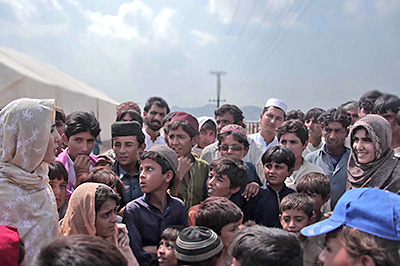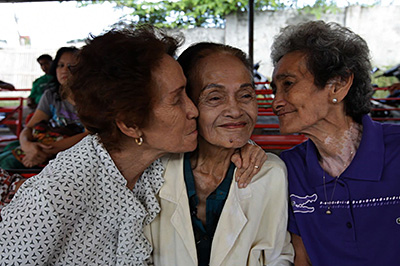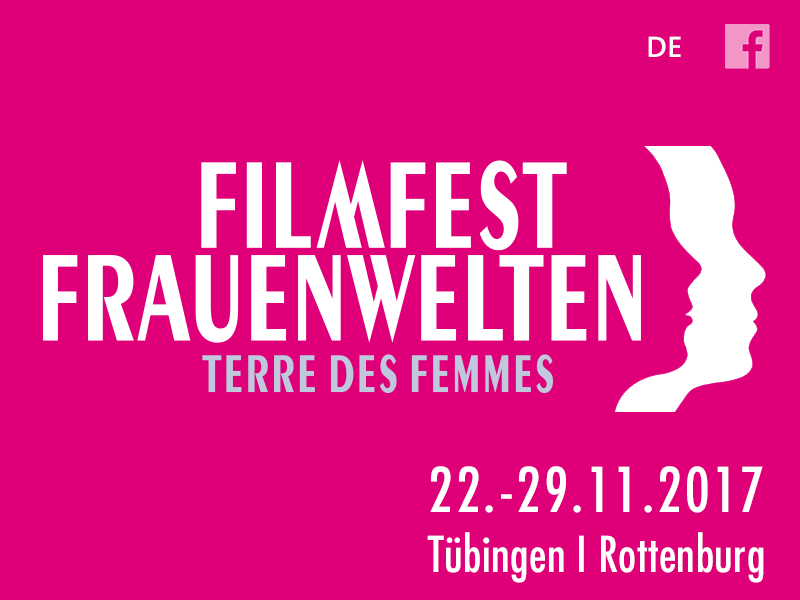Key Themes
|
The themes of „resistance against religious
fundamentalism“, „sexualized violence as a weapon of war“,
and „mother-daughter dialogue“ are just some of the topics
that will be illuminated from diverse perspectives in the more than
30 international feature and documentary films at the festival.
This year, the focus is on strong women in resistance against
religious fundamentalism, like the Saudi Arabian poet Hissa
Hilal – who,
on the popular casting show „Million’s Poet“,
speaks out in evocative language against the terror of the clerics
in her homeland, and who prevails, round after round against her
male opponents („The Poetess“). Also, Maria,
the „Girl
Unbound“ will not be cowed: although she hales from a
stronghold of the Taliban in northwestern Pakistan and she receives
regular
death threats, the 25-year-old athlete pursues her passion to play
squash in defiance of the fundamentalists. At first, in „The
Women’s Balcony“, the young Rabbi David seems to
be a ray of hope. Yet his extremely orthodox, misogynistic beliefs
increasingly divide the congregation – the women won’t
put up with that treatment and start a protest. And in „Bar
Bahar – In Between“, the liberal Djane Salma and
the tough defense lawyer Layla and her new roommate Noura form
an alliance
against Noura’s strictly orthodox fiancé. Together,
they stand up for a self-determined, free life. In contrast, the
military –trained fighters in „Girls‘ War“ are
directly involved in the war of liberation against the Islamic
state – by attempting to regain villages seized by IS.
|

|
Sexualized violence has always been used as
a weapon of war. There were the so-called “comfort women” in
the second world war, who were forced into prostitution by the Japanese
military (“The Apology”); or the polish nuns in
the French drama “Les Innocentes”, who were raped
by soldiers of the Red Army. And still today, women in war zones
become victims of sexualized violence, like the Yazidi women in „Reseba – The
Dark Wind“, who are kidnapped by terrorists from the Islamic
state and sold as sex slaves. In the eastern Democratic Republic
of Congo, the women’s center „City of Joy“ offers
women a safe place to heal from their trauma, and the chance to move
forward in life with renewed hope and joy.
Mother-daughter dialogues allow Huang and her lesbian mother,
Anu, to work through painful memories and develop a new closeness
in „Small Talk“. The director Stefanie Brockhaus
also learns more about her own family through dialogues, as she,
due to her personal situation, explores the topic of abortion and
discovers that her mother, grandmother and aunt have all taken
this difficult step (“Some Things Are Hard To Talk About”).And
in “Child Mother”, conversations about the past
help families to heal and grow closer, as children hear about their
mothers’ arranged early marriages, - allowing light to be
shed on the previously unspoken trauma.
back
|
 |
|
|

